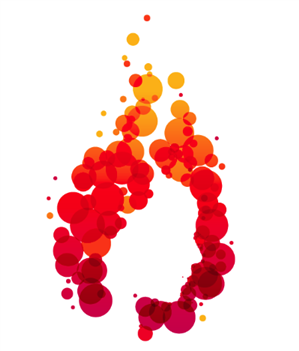

Body of IITR
What is it about the Wailing Wall of the Herod’s Temple or the St Peter’s Basilica that it leaves us gaping in awe at the majestic structure? What is it about the stupendous pillars of Karnak, rooted in the ground and outstretching out to the sky, that we feel so timid and fragile in front of the massive boulders and sink to hunches, as if the heavenly weight were to be borne by our undernourished shoulders? How do the gargantuan pyramids manage to diminish a man’s existence and disparage his birth, by the virtue of its size, even when most of it is contrived to be empty? Is it the sanctity of those beautifully carved colossal stones that makes us look small and our deeds appear blasphemous in contrast to its holistic superiority? Or is it just something in our brains?
Men have always worshipped greatness more than any God. Humans are enticed by enormity more than any form of beauty. This is the lust that drives the sudden influx of emotions when we stand facing the aforementioned works of architectural dexterity but to anything and everything that a man feels small and insignificant, in front of.
Ponder over why man never has sculptured a bourgeois figure for a Demigod but always the humongous Herculean figures with oblong cheek bones and robust body. He has always felt inadequate for himself but dreamt of the extraordinary.
But look at it this way. This underestimation of ‘self’ has worked wonders for him, apart from the cases it hadn’t. It is this submission to the ethereal that leads to introspection. Its equivalent to the ‘divine intervention’ that we talk about, which directs you to look back at your life in the chronological order of the events and realise the wrong of your ways. You close your eyes, feeling the cold summer sweat in a place of worship maybe, and it’s when the first tear that rolls down that you feel the sacrilege on your part. At this moment are the epiphanies reached and characters change. It would have been the time when the most ruthless would refrain from killing and the most nefarious would drop his stolen bag of gold. You open your eyes slowly and exhale, penance in your breath.
The central theme of the entire episode is the way the man looks down upon his own self as a diminutive element, dwarfed by all that is ‘majestic’ and ‘great’, brings about the change in him. It’s with an agonising heart that he is able to look into the mirror and this is when the metamorphosis happen.
But think of a man, the one who is in the zenith of his career and tell him that altruism is the noblest virtue and that he must live for others. Admonish him that he has been such a narcissist monster and then he would question his own beliefs. He would marinate in his own mediocrity with the guilt for his own unworthiness. Unable to become what he considers as the ideal, he would give up trying. And since the noblest is beyond his grasp, he gives up eventually all ideals. Integrity killed by internal corruption. Conscience used against itself. He takes himself for a sinister who can never come clean.
Now that he has taken himself as your disciple, praise the ordinary so that greatness is no longer a distinction. Imagine again those Greek sculptures of the Gods be grotesque pieces of stones rather than the virile muscularity contoured all through their body. Would you bow? Now that you know whom you bow in front of is someone amongst you. This way you have destroyed his strive for excellence. Just as a hiker would lose his prerogatives if one amongst every ten scaled the Everest.
Now that we have unravelled our weaknesses, would it be rather comfortable to say that Randist theories on the philosophy of individualism were correct and have provided a plausible explanations of the loopholes in our idea of self-assessment. Can a temple be contrived in such a way that, instead of a feeling minimalistic, we could feel extravagant. The one that could have the horizontal blind like pillars and not those towering kinds; whose interior would be scaled in such a way as to magnify the spirit of humans rather than stunting it. Will this modification in structure figurative bring a change in the gusto by which a person approaches life?
Something to think about, indeed. For he, who thinks of himself as the master and not the slave, is unimpressionable. He would have the audacity to embark upon new journeys without flinching to the fangs of hatred hurled at him during the course. The most peculiar idiosyncrasy is cutting the chase for the great, as greatness can be found within the self. Self-amplification instead of self-pity. Recognising your worth and fostering in an healthy environment and not giving away to the wrath of a crushed self esteem. Being driven by a vision and not by social acceptance and appreciation. It would take a diligent effort to suppress an individualist because it is only himself that he works for.
Titillating it is, to talk of glory but this person, an individual, is susceptible to becoming a self-centered narcissist. And if everybody begin exercising their independent will then societal harmony would shrink to niches and civilisations would fall. Shadowing one’s inadequacies is ignorance and change doesn’t happen until challenged by disapproval of the self.
Hence, the assertion completes the cycle, in the argument of how to be look at oneself and whether to believe or not in the heroic in men.